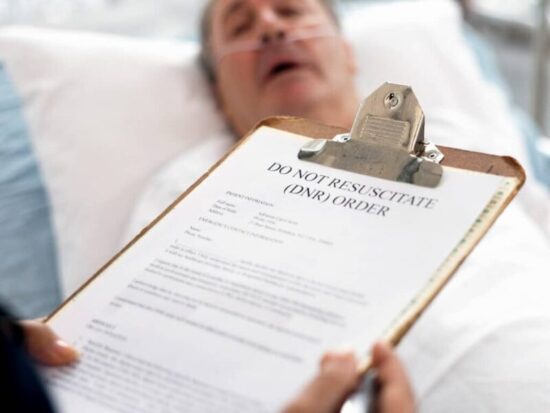
When patients complete Do Not Resuscitate (DNR) orders or Medical Orders for Life-Sustaining Treatment (MOLST) forms in New York, they are making deeply personal healthcare decisions about how they wish to be treated in critical moments. However, if a healthcare provider ignores these legally binding orders and performs unwanted interventions, it can cause serious harm — and even lead to a medical malpractice claim.
A Do Not Resuscitate (DNR) order instructs medical staff not to perform cardiopulmonary resuscitation (CPR) if a patient’s breathing or heart stops.
In New York, DNR orders can be issued for patients in hospitals, nursing homes, or even at home. They must be:
A DNR is not about withholding other treatments; it specifically addresses CPR and advanced cardiac life support.
You can request a DNR form directly from the hospital or healthcare facility where you are receiving treatment. If you are planning ahead or managing care at home, you can also obtain a DNR form through the New York State Department of Health or your local county health department. These forms must be properly completed and signed by a licensed medical professional to be legally valid.
A Medical Orders for Life-Sustaining Treatment (MOLST) form is a more comprehensive document than a DNR. It covers a wider range of healthcare decisions, including:
MOLST forms are typically used for patients with serious health conditions or a limited life expectancy.
Like a DNR, a MOLST form must be:
MOLST forms are legally binding and honored across all healthcare settings in New York.
If a patient is harmed because a DNR order was ignored, it may be considered medical malpractice.
These cases are fact-sensitive and may depend on witness testimony, documentation of the DNR, and whether the conduct was negligent or egregious.
Additionally, healthcare providers who violate a DNR or MOLST order may face disciplinary actions from licensing boards and professional organizations.
If you or a family member have a DNR or MOLST in place, take steps to ensure it is honored:
When a valid Do Not Resuscitate (DNR) or Medical Orders for Life-Sustaining Treatment (MOLST) form is ignored, the consequences can be serious. Patients may be subjected to unwanted medical interventions, physical suffering, emotional trauma, and a violation of their documented healthcare wishes.
Failing to follow these directives may amount to medical malpractice. If you or a loved one suffered harm because a healthcare provider failed to respect a DNR or MOLST order, you may be entitled to compensation.